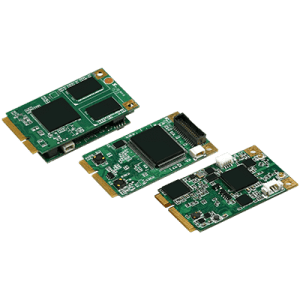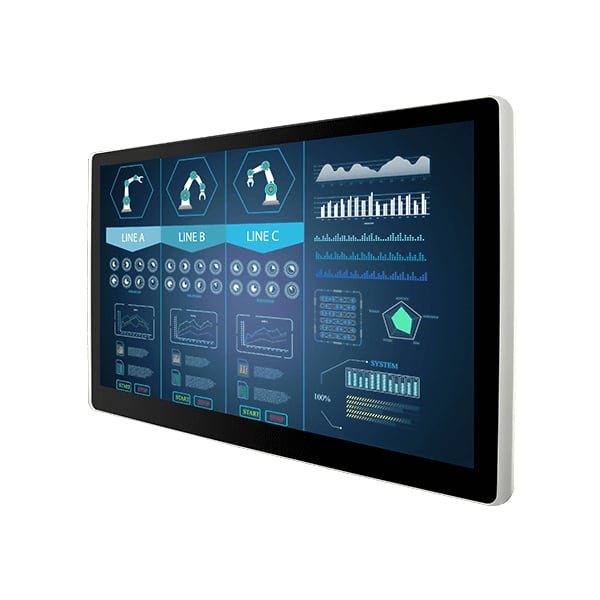
CCTV | Surveillance | Object Recognition
In today’s world, CCTV, surveillance and object recognition have become an integral part of security and safety requirements for businesses and organisations.
The use of industrial computers in security systems have allowed for increased efficiencies and accuracy in monitoring and tracking. Whether you’re looking to upgrade your current system or are purely have an interest in learning more about this technology, we’ll provide valuable insight to the options available to you.
- CCTV (Closed-Circuit Television) is a system of cameras and other equipment that’s used to monitor and record activity in a specific area. The footage is typically viewed and stored on a separate, closed system, rather than being broadcast to the public.
- Surveillance refers to the act of closely monitoring or tracking a person, a group of people or a specific area – typically for security or safety purposes. This can be completed via a variety of means, including CCTV, GPS tracking or electronic monitoring.
- Object recognition is a technology that allows a computer or other device to identify and differentiate between different objects in an image or video. This can be completed using machine learning algorithms and can be used for a variety of purposes such as security, self-driving cars and a whole host of applications.

CCTV
The specific hardware needed for a CCTV system will depend on the type and size of the system, but common components include:
- Cameras: The primary component of a CCTV system and can vary in terms of resolution, lens type and other features.
- Video Recorders: Will store the footage captured by the cameras. It can either be a Digital Video Recorder (DVR) or a Network Video Recorder (NVR).
- Networking Equipment: Enable the CCTV system to be accessed remotely and to transfer data over the network. This can include routers, switches and video encoders.
- Industrial PC: A rugged version of a regular PC, specifically designed for industrial environments.
- Monitors: Used to view the live footage from the cameras and to play back recorded footage.

Surveillance
The specific hardware needed for a surveillance system will depend on the type and size of the system, but common components include:
- Cameras: The primary component of a CCTV system and can vary in terms of resolution, lens type and other features.
- Video Recorders: Will store the footage captured by the cameras. It can either be a Digital Video Recorder (DVR) or a Network Video Recorder (NVR).
- Networking Equipment: Enable the CCTV system to be accessed remotely and to transfer data over the network. This can include routers, switches and video encoders.
- Power Supply: Provide power to the cameras and other components of the system. They can be AC or DC power.
- Monitors: Used to view the live footage from the cameras and to play back recorded footage.
- Industrial PC: A rugged version of a regular PC, specifically designed for industrial environments.
- They are more durable, and resistant to harsh conditions like dust, water/damp, vibration and temperature fluctuations.
- They are the brain of the surveillance system, running application software to process and analyse the footage.
- Additional peripheral devices may be needed such as keyboard, mouse and other input devices.
Additionally, surveillance systems may also require specialised hardware such as GPS tracking devices, RFID readers and biometric scanners.

Object Recognition
The specific hardware needed for an object recognition system will depend on the type and size of the system, but common components include:
- Camera or video source: To capture the images or videos that will be analysed by the system.
- Industrial PC: A rugged version of a regular PC, specifically designed for industrial environments.
- They are more durable, and resistant to harsh conditions like dust, water/damp, vibration and temperature fluctuations.
- They are the brain of the surveillance system, running application software to process and analyse the footage.
- Processor: Responsible for running the object recognition software and performing the necessary calculations.
- This can be a standard CPU or a specialised processor such as a GPU or TPU.
- Memory: Used to store the data and intermediate results used by the object recognition software.
- Storage: Used to store the image or video data, as well as any models or other data used by the object recognition software.
- Networking: To enable the object recognition system to communicate with other devices and systems, including cameras, servers and databases.
It’s important to note that these are general components and the hardware used in object recognition will vary depending on the scope of the project and the algorithms used. Some systems may also require additional hardware such as specialised sensors or cameras with specific capabilities.

CCTV, Surveillance and Object Recognition: Examples
- Industrial computers enhance CCTV and surveillance with advanced analytics software, enabling real-time footage analysis to detect threats through motion, facial, and license plate recognition.
- They enable remote monitoring, giving security personnel the ability to manage CCTV systems over the internet, including live viewing and camera adjustments.
- Through intelligent video analytics, industrial computers apply machine learning for object and individual identification, aiding in security and traffic control.
- These computers assist in monitoring industrial processes, utilizing video analysis for early problem detection and equipment inspection.
- Integration with access and intrusion detection systems forms a layered security network that identifies and manages breaches more efficiently.
- For applications like people counting, they use computer vision to track foot traffic, optimizing resources like retail staffing.

CCTV, Surveillance and Object Recognition: Industrial Computers from BVM
Industrial computers play a crucial role in the advancement of CCTV, surveillance and object recognition technology. From advanced analytics and remote monitoring to intelligent video analytics and integration with other security systems, industrial computers provide the power and flexibility needed to enhance security, safety and efficiency.
As the demand for advanced security and surveillance systems continues to grow, it’s clear that industrial computers will continue to play a vital role in their development and implementation. Whether you’re looking to upgrade your current system or are purely interested in learning more about this technology, it’s clear that industrial computers are a key component of CCTV, surveillance and object recognition today – and for the future.
Industrial PCs
Industrial Computers, Box PCs and Embedded Systems available with Intel i3 / i5 / i7 / Celeron / Atom and AMD Ryzen Embedded CPU’s.
Industrial Panel PCs
7″ to 24″ Touchscreen Panel PCs for industrial applications available with Intel i3 / i5 / i7 / Celeron / Atom and AMD Ryzen CPU’s.
Industrial Motherboards
Industrial embedded motherboards and SBC’s are available in a range of factor sizes; from Mini-ITX, 3.5″ SBC’s, NUC to Pico-ITX modules.

Yuan Video Capture Solutions from SD to 4K,
Hardware Compression or Raw Data.
Yuan Video Capture Solutions
Yuan provide a series of PCIe / Mini-PCIe / M.2 video capture cards, USB2.0/3.0 capture box/dongle series, as well as a range of video converter boxes and streaming encoder boxes to fulfil a variety of markets and application needs.
Yuan’s video capture products are provided across a range of form factors and are all supported by one driver and the same SDK, compatible with Windows DirectShow or Linux v4l2 standards. And where customisation is needed, Yuan’s R&D team will design, develop hardware, drivers, firmware and FPGA, & SDK packages to provide befitting technical support.
PCIe Capture Cards

M.2 Capture Cards

Mini PCI-e Capture Cards



















